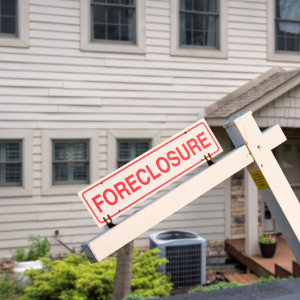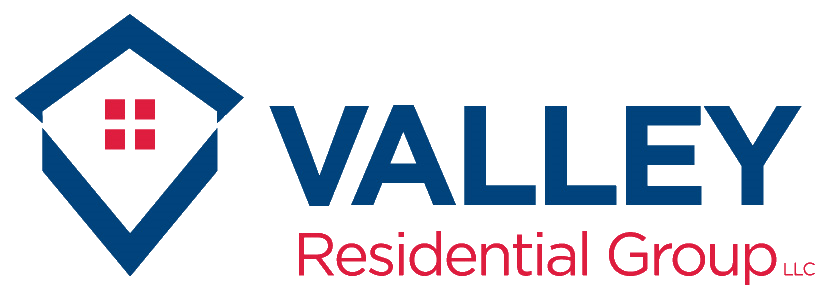
Understanding Homeowners Association (HOA) Dues and Financial Obligations
Homeowners Association (HOA) dues are essential to living in a community regulated by an HOA, particularly in Southington, CT. These financial commitments are necessary to preserve shared amenities, common areas, and overall property values in the neighborhood.
Homeowners regularly contribute to gardening, security, communal space insurance, and upkeep. Understanding these dues is critical for homeowners and associations seeking to avoid delinquencies that affect the community’s finances and operations.
Each homeowner is contractually bound to pay their portion, as specified in the association’s governing documents. When dues become delinquent, the HOA’s resources are more stretched, potentially leading to higher costs or fewer services for all members.
Clear communication regarding the purpose of these dues and rigorous enforcement of payment procedures are critical measures for ensuring that homeowners and associations satisfy their financial obligations.
If financial strain from dues threatens your ability to stay current on mortgage or household bills, Valley Residential Group LLC is here to help—offering solutions for those looking to sell their Southington house fast for cash.
Legal Framework Governing HOAs in Southington, Connecticut

In Southington, Connecticut, the legal framework governing Homeowners Associations (HOAs) is primarily based on state statutes and local rules that define the HOAs’ obligations and powers in administering community affairs. The Connecticut Common Interest Ownership Act (CIOA) is the cornerstone for HOA governance, providing detailed standards for collecting assessments, administering common spaces, and enforcing rules.
Under CIOA, HOAs can lay liens on properties with outstanding dues, giving them a legal way to recoup unpaid assessments. Furthermore, Southington’s local ordinances may supplement these state regulations by addressing unique community requirements or challenges such as property maintenance and homeowner compliance.
Homeowners and HOA boards in Southington must thoroughly comprehend these legal rules to manage unpaid dues while maintaining community cohesion. Legal help from a real estate and HOA attorney can be invaluable in handling complex issues regarding past-due payments.
Financial Planning for Homeowners: Budgeting for HOA Fees
For Southington, CT, residents need effective financial planning to manage HOA payments and minimize delinquencies. Budgeting for these dues entails comprehending the annual assessment established by the homeowners’ organization and factoring it into your monthly financial plan.
To ensure the timely payment of HOA fees, homeowners should prioritize setting aside funds for them. Establishing an emergency savings fund can also give a cushion against unforeseen expenses that may impair your capacity to pay on time.
Reviewing the association’s budget and any forthcoming projects will help you predict prospective fee hikes, allowing you to make necessary adjustments to your budget. Homeowners can keep updated on changes or special assessments that influence their financial planning by communicating openly with the HOA board.
Proactively managing income and expenses, including HOA dues, helps homeowners retain good standing in their community while avoiding penalties for late or missed payments.
Best Practices for Creating Transparent HOA Budgets
In Southington, CT, properly resolving unpaid HOA dues begins with creating open and well-structured budgets within homeowner organizations. HOAS must have accurate financial records that show all income and expenses, so that all members understand how their dues are handled.
Regular financial reports should be provided to homeowners to build confidence and responsibility. Implementing precise budget plans and forecasting future maintenance and operations needs can help to avoid shortages and the buildup of late payments.
Furthermore, saving aside funds for unexpected needs or emergencies might help the association’s financial stability. Open communication between board members and homeowners regarding fiscal problems fosters community trust and reduces the probability of dues disputes.
Southington homeowners’ associations can better manage resources and address late payments by fostering transparency in financial management.
The Importance of Clear Bylaws in Preventing Payment Disputes
Clear bylaws are essential for preventing payment disputes related to delinquent HOA dues in Southington, CT. When homeowners associations establish precise and comprehensive bylaws, they create a transparent framework that assists homeowners and the association understand their responsibilities regarding dues payments.
Clear bylaws should establish payment schedules, late payment penalties, and delinquency resolution methods. This transparency helps to prevent misunderstandings and conflicts because all parties are aware of the financial duties and penalties of nonpayment.
Furthermore, well-defined bylaws allow the HOA to consistently and fairly enforce rules, ensuring that all homeowners are treated similarly under the association’s standards. With clear principles, associations can reduce disagreements over dues collection while focusing on maintaining a peaceful community culture.
Tips for Avoiding Delinquency on Homeowners Association Dues
To avoid falling behind on homeowners association (HOA) dues in Southington, CT, homeowners and associations must participate in proactive financial planning and communication. Homeowners should prioritize their HOA dues in their monthly budgets and ensure they are paid on time to prevent penalties and possibly legal action.
Setting up automated payments might help maintain regularity and avoid missed deadlines. Associations can help by clearly communicating the need for regular payments and offering flexible payment arrangements to people experiencing financial challenges.
Homeowners can stay prepared by analyzing financial accounts regularly and staying informed of any changes to the fee structure or special assessments. Maintaining an open line of communication with the HOA board might help address any issues before they become delinquent.
Furthermore, organizations should educate homeowners about the repercussions of late dues, such as property liens and loss of community rights, emphasizing the need to keep up with payments. For those who consistently struggle, it may be time to explore alternatives—like working with a trusted local company to sell your house fast in Bristol and avoid further financial stress.
How to Address Common Causes of Late HOA Payments

In Southington, CT, managing outstanding HOA dues necessitates a strategic understanding of why residents fall behind on their payments. One common issue is financial hardship, resulting from unanticipated medical bills or job loss.
Homeowners associations (HOAs) can provide flexible payment plans to meet these conditions, allowing people to catch up with minimal stress. Furthermore, poor communication frequently correlates with late payments, so HOAs should provide clear and consistent reminders about forthcoming dues and several avenues for homeowners to express issues or seek help.
Misunderstandings over price increases or special assessments can sometimes cause payment delays. To address this, associations could promote transparency by hosting frequent meetings at which changes are fully explained and documented.
For some homeowners, the complexity of managing several bills might lead to overlooking; therefore, enabling automated payment options can expedite the process and prevent missed deadlines. By proactively identifying these difficulties and implementing supporting measures, Southington homeowners and associations can work together to maintain financial stability in their communities.
Strategies to Manage Delinquent HOA Dues in Residential Communities
Effectively managing unpaid HOA dues in Southington, CT, necessitates a comprehensive strategy suited to residential communities. Homeowners’ associations (HOAs) should create clear communication lines with homeowners to address past-due payments immediately.
Regular reminders and updates regarding due dates can help to avoid misunderstandings and encourage on-time payments. Another method is to implement flexible payment plans, which allow struggling homeowners to pay their bills over time without excessive stress.
Associations can also consider offering discounts or minor awards to encourage early or on-time payments, building a timely culture within the community. Legal action should be viewed as a last resort; however, understanding local legislation and working with legal professionals can assist HOAs in navigating this process if necessary.
Collaborating with financial advisers or management businesses may provide extra insight into long-term economic practices that support the association’s budgetary goals and homeowner satisfaction. Combining these techniques allows HOAs in Southington to reduce delinquent dues while maintaining strong ties with community members.
Engaging Community Members to Improve HOA Payment Compliance
Effective communication is essential in resolving unpaid HOA dues in Southington, CT. Homeowners’ organizations must balance encouragement and firmness when approaching non-compliant members to stimulate positive communication.
Starting the process with gentle nudges like courtesy reminders tends to motivate collaboration. Peak participation through phone calls or in-person visits allows a better understanding of the homeowner’s financial burdens and challenges.
Empathy is crucial to maintaining rapport when discussing payment plans or feasible alternatives. To safeguard the HOA against future disputes, all correspondence needs to be catalogued adequately as documentation and for accountability purposes.
Using follow-ups, prior discussions can be expanded upon. Households can be provided with tangible evidence of their responsibilities. Timely communication about the community’s economic status and the value of paying dues on time is a great reminder to enhance adherence.
HOAs can proactively create and foster open communication channels to work towards closing the gaps in non-compliance for delinquents, promoting a powerful sense of belonging.
Engaging Community Members to Improve Timely Payment Rates
Active participation within the local community is pivotal for increasing the prompt payment rates for overdue HOA dues in Southington, CT. Homeowners’ organizations can motivate individuals to meet their obligations more willingly by fostering community and dialogue.
Aspiring to educate the board members and homeowners creates opportunities for active engagement and helps eliminate resolvable issues and grievances within the community. Through active education, residents learn how HOA dues are vital for the upkeep of shared amenities and property value, and will thus be more compliant with scheduled payments.
Utilizing social media for notifications ensures that residents are updated about payment schedules and policy changes and that targeted intervention is provided for specific cases of overdue payments. Having an open policy concerning the spending of the funds creates trust, allowing residents to feel more committed and compliant with the timelines set.
Through fostered responsibility in community members, the residents of Southington can enhance the timeliness of HOA dues payments.
The Role of Property Managers in Collecting Overdue HOA Dues
Southington, Connecticut, property managers are crucial in managing unpaid HOA dues. They function as intermediaries between the homeowners’ association (HOA) and the residents. These professionals enhance the community’s financial well-being through effective overdue payment collection strategies.
Property Managers ensure that all communications regarding payment reminders are uniform, legislatively compliant, and regionally appropriate. Property managers have traditionally used an organized approach, systematically sending reminder and collection letters to delinquent homeowners, relieving volunteer board members from considerable workload burdens.
Moreover, to preserve community relations, property managers may limit their work with legal counsel to initiating formal collection processes. Owing to their financial management skills, conflict resolution skills, and community relationship management, property managers also help maintain a balanced budget for the association. They help foster fairness and responsibility among the residents.
Their active involvement is vital in reducing HOA financial liability and ensuring equitable contributions from all members towards maintaining shared resources.
Addressing Disputes Between Residents and HOAs in Relating to Payments
In Southington, CT, addressing disagreements between homeowners’ associations (HOAs) and residents regarding unpaid dues requires an understanding of both parties’ systems of communication and negotiation. Both homeowners and HOAs must educate themselves on the community’s governing documents, which outline dues, fees, and other financial obligations.
Financial grievances should be disclosed to the HOA board, where actionable arrangements, including respite measures, can be negotiated. Mediation proves advantageous because it allows residents and the HOA a neutral platform to express their frustrations and attempt to reach an agreeable solution.
HOAs must show compassion and flexibility toward homeowners struggling to meet obligations while enforcing policies to maintain order. This balance alleviates unnecessary tension. Temporarily relaxing community rules could reduce tensions. Spending focused on legal action should be avoided unless necessary due to the divisive nature of community spending, which tears apart relationships while inflating costs.
Resolving issues instead of concentrating solely on the community’s problem, a collaborative approach, along with joint efforts to create a payment scheme, diminishes the financial burdens while considering the unique needs of the residents and strengthens the association.
Role of Mediation Services in Resolving HOA Financial Disputes
In Southington, CT, mediation services are essential for resolving financial conflicts concerning overdue HOA dues. Mediation provides a structured space where homeowners and association handlers actively engage with one another, facilitating the resolution of outstanding dues.
Mediation aids in information exchange, enabling both sides to understand each other and reach an agreement. This approach helps maintain community balance by removing the combative dimension of legal action.
HOA conflict resolution helps reduce time and financial costs, like any other mediation process. Many associations in Southington have successfully achieved payment agreements or settlements with the assistance of specialized mediators who focus on HOA issues.
This method enhances communal collaboration, fostering community-level trust and understanding among residents and board members.
Exploring Alternative Penalty Systems for Late HOA Payments
In Southington, CT, homeowners’ associations (HOAs) collect outstanding dues from members. Exploring alternate disciplinary actions for overdue HOAs could offer a more effective approach. Traditional late fees or penalties do not effectively incentivize timely payments and often fail to address the root issues behind chronic overdue payments.
A tiered penalty approach may be a more adaptable strategy. This could help homeowners struggling with financial issues by granting them additional time and incentivizing timely payments. It could include raising penalties progressively or offering early settlement discounts on pending bills.
Moreover, HOA boards might consider increasing resident involvement and responsibility by permitting community service instead of conventional fines. Tailoring payment policies to specific financial situations is another approach that ensures members have practical, non-burdensome paths towards fulfilling their obligations.
Southington HOAs can achieve higher compliance within legal frameworks while maintaining amicable relations with homeowners through these methods.
Connecticut’s Legal Implications of Unpaid HOA Membership Dues
In Southington, the non-payment of HOA dues triggers invasive actions. In Connecticut, HOA fees are considered revenue; therefore, Associations have the right to impose restrictions along with late fees or interest on the unpaid amount.
If these attempts do not yield any results, the association can undertake more drastic measures, like placing a lien on the defaulting owner’s property. Such a lien is a legal encumbrance that significantly curtails the homeowner’s ability to sell or refinance their mortgage.
Moreover, if the debt remains unpaid, the HOA may initiate judicial proceedings toward foreclosure. These foreclosure lawsuits enable associations to recover the owed amounts while simultaneously placing residents at risk of losing their homes.
Also, under Connecticut statute, HOAs have the right to undertake collection actions and recover the costs of legal services rendered during the action. Homeowners in Southington should be conscious of these potential outcomes and take action to resolve any financial obligations associated with HOA dues to avoid more serious legal complications.
Understanding the Foreclosure Process Relating to HOA Fee Debt

Understanding the foreclosure process relating to HOA fee debt in Southington, CT, entails necessary actions that homeowners and organizations must understand. Failure to pay dues gives the association the right to take legal action to recover the unpaid amounts.
If the HOA dues are not settled promptly, foreclosure of the property may become a reality. Before initiating foreclosure, associations must comply with Connecticut’s specific legal requirements, which entail providing adequate notice to the homeowner and offering payment plan approaches or mediation options.
Homeowners in foreclosure need informed assistance to ensure they know their rights and evaluate all possible options for debt relief. Every endeavor that violates protocols requires extensive documentation of all actions and efforts toward resolution before making formal decisions, so associations must comply with due process.
Grasping these processes fosters amicable relations, diminishes disputes, strengthens relationships within the community, and bolsters the financial well-being of the homeowners’ association.
Building a Resilient Financial Strategy for Your Local Homeowners Association
Developing a resilient financial strategy is critical for homeowners associations (HOAs) in Southington, CT, particularly regarding unpaid HOA dues. A strategically designed framework helps ensure financial solvency while managing late payments.
The HOA board must share the policies and regulations for collecting overdue dues with all members. Automated payment systems can be coupled with flexible payment plans to assist financially constrained homeowners in improving the odds of receiving payment.
Regularly updating and monitoring the association’s budget fosters proactive responses to shifting economic circumstances while maintaining the requisite buffer to handle unexpected expenses, defaults, or delinquencies. Prompting board members fosters responsive communication, often leading residents to embrace their responsibilities, thus proactively streamlining payment processes.
Strategic consultations with qualified financial planners or attorneys may yield valuable methods for managing ongoing debts.
How to Collect Unpaid HOA Dues?
Collecting overdue Association fees requires organized steps to avoid operational difficulties for the homeowners association in Southington, CT. The HOA board must first refer to the association’s governing documents, including the bylaws and covenants that outline the procedures for dealing with overdue payments.
Encouraging overdue payment reminders is helpful. Payment notifications must state the overdue amount, applicable fees, and potential penalties for failure to settle balances within the specified period. If reminders do not yield the desired results, a more structured approach using streamlined resolution pathways may prove effective.
Resolving disputes is equally essential. Delinquent homeowners may reveal defaulting delays with payment solutions that are more convenient for them. Associations must contract with specialized suppliers in HOA law collections in more severe scenarios.
Every step applied should be balanced in approach for diverse participants so that no member has an underlying bias or predilection that favors or limits payment obligations. This will give rise to posterity, where community members can understand actions beyond the façade of power.
How Do I Look Up HOA Dues?
Homeowners and associations must manage outstanding dues effectively to search for HOA dues in Southington, CT properly. To start, homeowners must look for their HOA’s governing documents, such as the Covenants, Conditions, and Restrictions (CC&Rs), which outline exact assessment schedules and due dates.
Homeowners can access these documents through the association’s website or by contacting the HOA board directly. Additionally, many HOAs in Southington offer portals for members to view account statements detailing the current balance of dues owed.
Residents should also participate in the monthly HOA meetings that cover finances. This is important to ensure that the associations have up-to-date records, as these records assist in payment tracking and determining delinquencies.
Associations could use specialized HOA management software that allows board members and residents to access financial information easily. By providing straightforward communication regarding HOA dues, homeowners and associations can work together to ensure the timely resolution of delinquent payments.
What Are the Consequences of Not Paying Your HOA Dues?
In Southington, CT, HOA dues are paid on time to avoid any negative consequences for homeowners. Like many other homeowners’ associations, Southington’s HOAs depend on the dues for neighborhood infrastructure and services. Hence, overdue payments create logistical challenges and must not be permitted.
At first, homeowners face fines and penalties that increase their overall debt. The association may escalate the matter in severe situations and send formal reminders or demand letters.
Failure to pay dues for extended periods may result in the system-generated generation of HOA dues, which can be legally charged to the property. This charge will negatively impact certain aspects, such as the property’s credit score, and any future exchanges with the property will be restricted.
The HOA has the potential to initiate foreclosure processes to recover the required amount. Homeowners struggling financially should contact their HOA to proactively address the matter, as many associations allow flexible payment options or other simple alternatives to avoid severe repercussions.
How to File a Lien for Unpaid HOA Dues?
For community associations with aged receivables, filing a lien for overdue HOA payments in Southington, CT, is essential. Before initiating the process, the association must review its governing documents and ensure compliance with relevant Connecticut homeowner association laws.
It is essential to send the homeowner a formal communication that includes the balance owed and the possibility of a lien being filed against their property. The HOA must also provide the balance with any late fees and additional interest that may accrue.
In cases where no payment is provided, it is the sole responsibility of the HOA to prepare a lien with the specific amount due and file the lien at the town clerk’s office in Southington. Community associations must understand the importance of due process and the totality of proper documentation and maintenance of communication regarding financial information.
This process will result in placing a lien against the property, which then becomes a legal encumbrance. The property cannot be sold or refinanced until all unpaid dues are settled. Knowing the proper procedures to file a lien enables community associations to recapture overdue payments and improve the financial position of the neighborhood associations.
Whether you’re facing mounting HOA dues, dealing with legal complications, or simply ready for a fresh start, Valley Residential Group LLC is here to help—offering compassionate, fast, and reliable solutions for homeowners looking to sell their Connecticut home quickly and confidently. Contact us at (860) 589-4663 today to get your offer!
Helpful Southington Blog Posts
- Understanding Capital Gains Tax On Real Estate Sales In Southington, CT
- Expert Tips For Downsizing Your Family Home In Southington, CT
- Do I Need A Lawyer To Sell My House In Southington, CT?
- Addressing Delinquent HOA Dues In Southington, CT
- Maximize Your Home Sale With Contingency Strategies In Southington, CT Real Estate

| HOMEOWNER’S ASSOCIATIONS | CONDO | CONDOMINIUMS | CONDOMINIUM COMPLEX | BOSTON | FORECLOSE |
| SUING | SUIT | LAWSUIT | LITIGATION | HARVARD | HARVARD UNIVERSITY |
| BOSTON GLOBE | NBC | BRIGHTON | CAMBRIDGE | THOMASTON | FLORIDA CONDO COLLAPSE |
| FLORIDA CONDOMINIUM COLLAPSE | SOUTH BURLINGTON | MAINE | LAWYER | HARVARD SQUARE | FLORIDA |
| ENGLAND | ARNOLD ARBORETUM | ARBORETUM | APARTMENTS | TOWER | RHODE ISLAND |
| NUNS | JAMAICA PLAIN | JAMAICA | COOKIE | GOGGLES | GOLOCALPROV |
| CONNECT CRE | COMPLAINT | CBS NEWS | BOSTON.COM | BOSTON MAGAZINE | BANGOR DAILY NEWS |
| BALLOON | LIEN ON THE | A LIEN ON THE |
